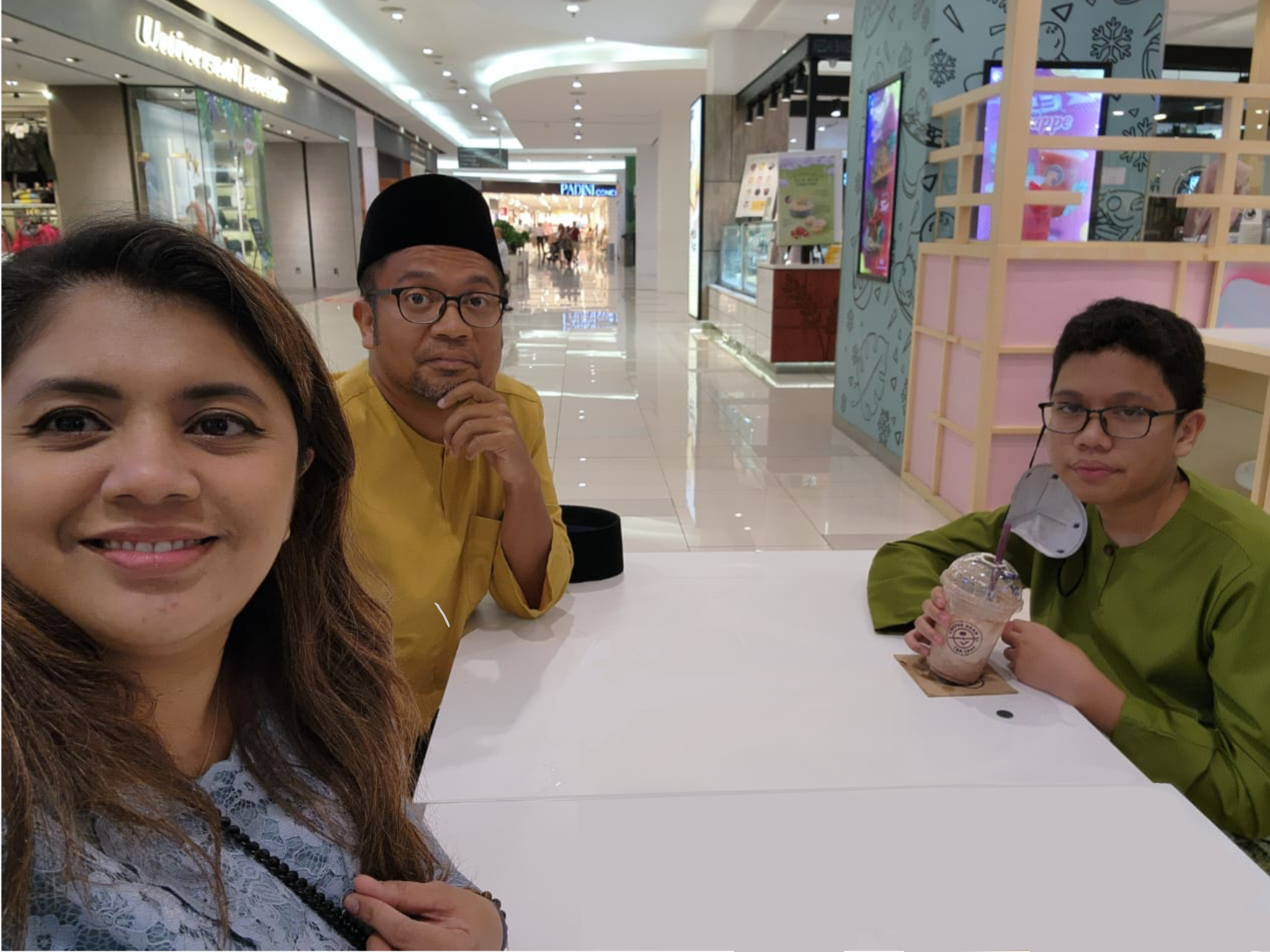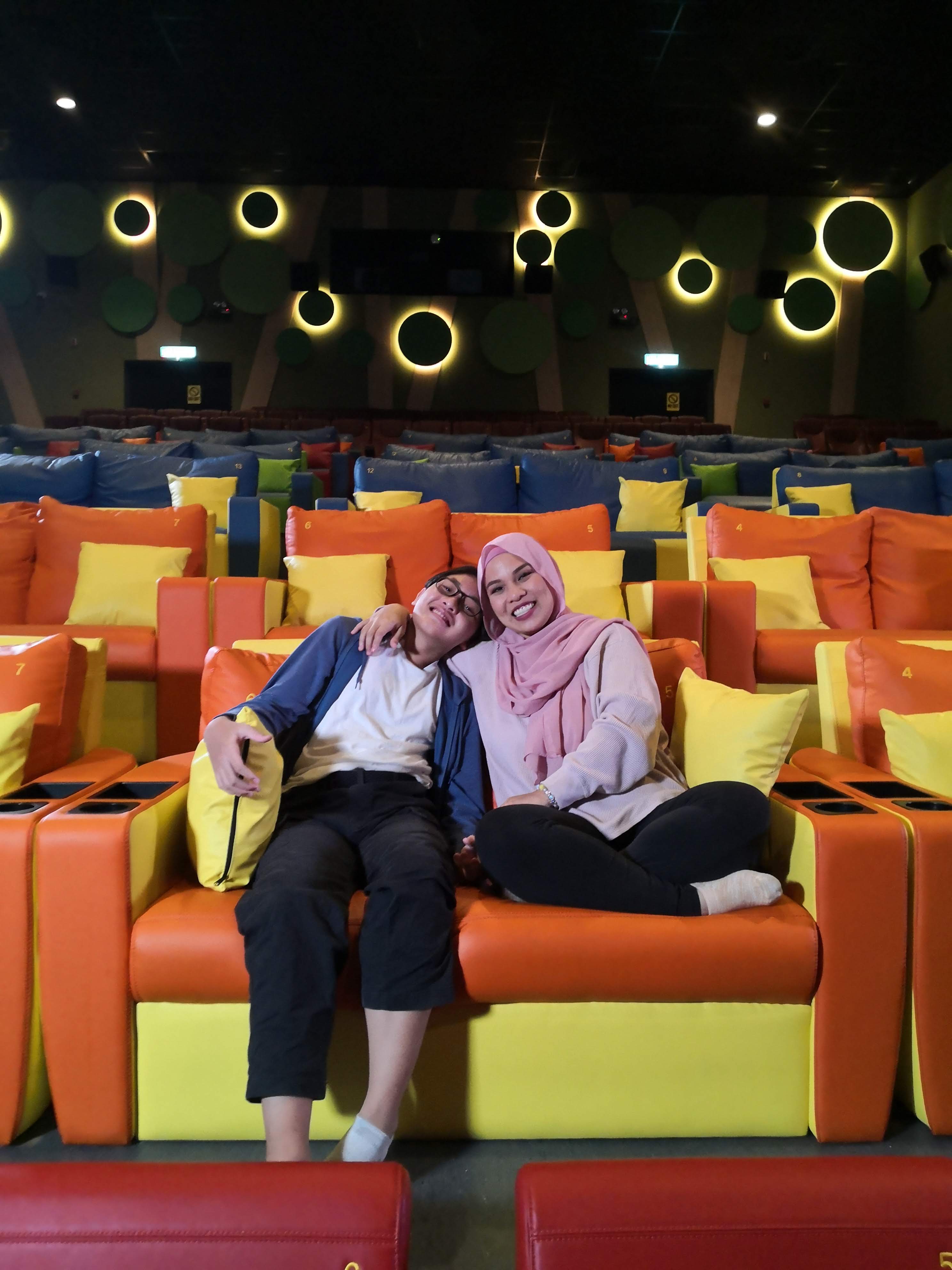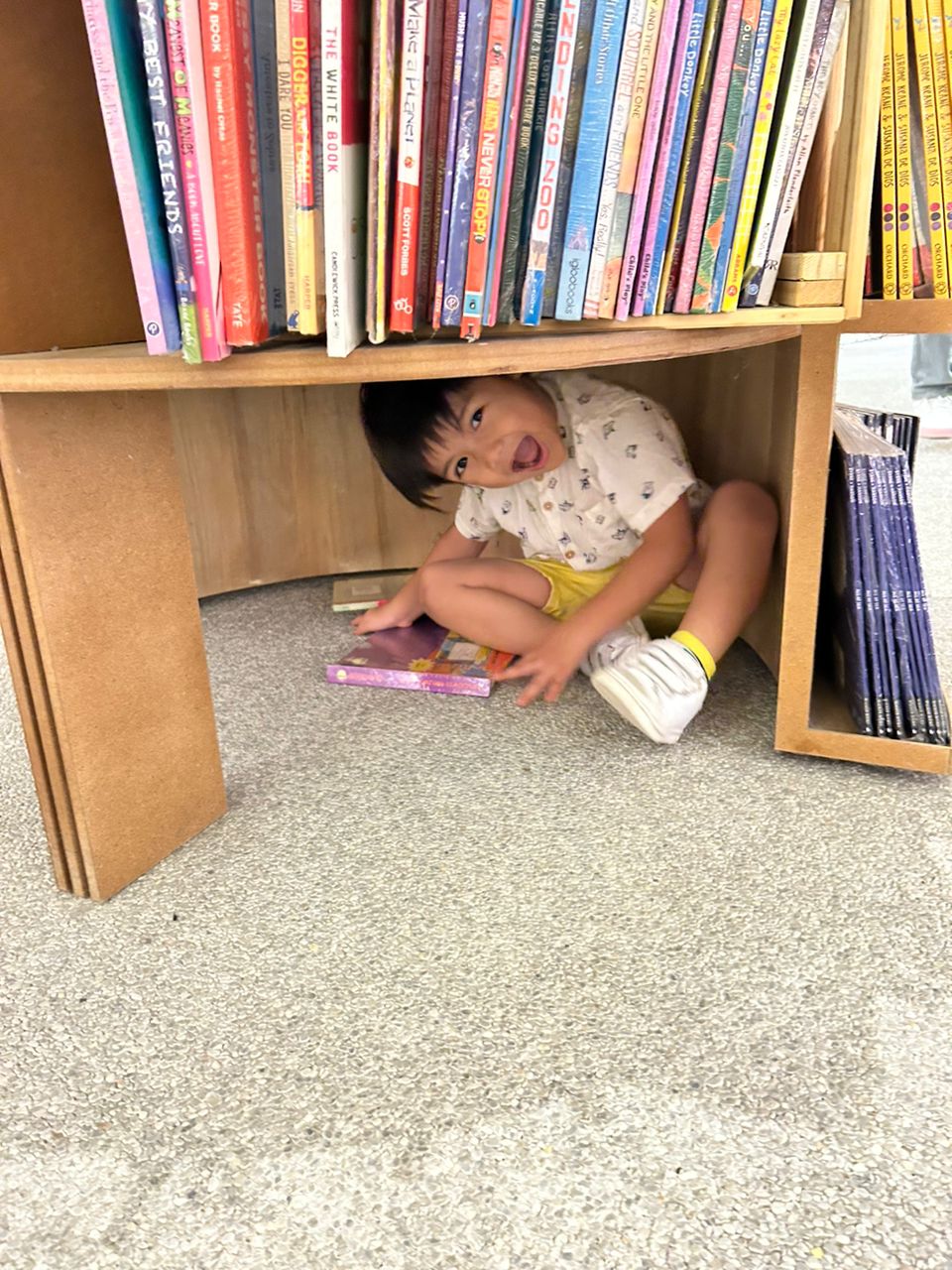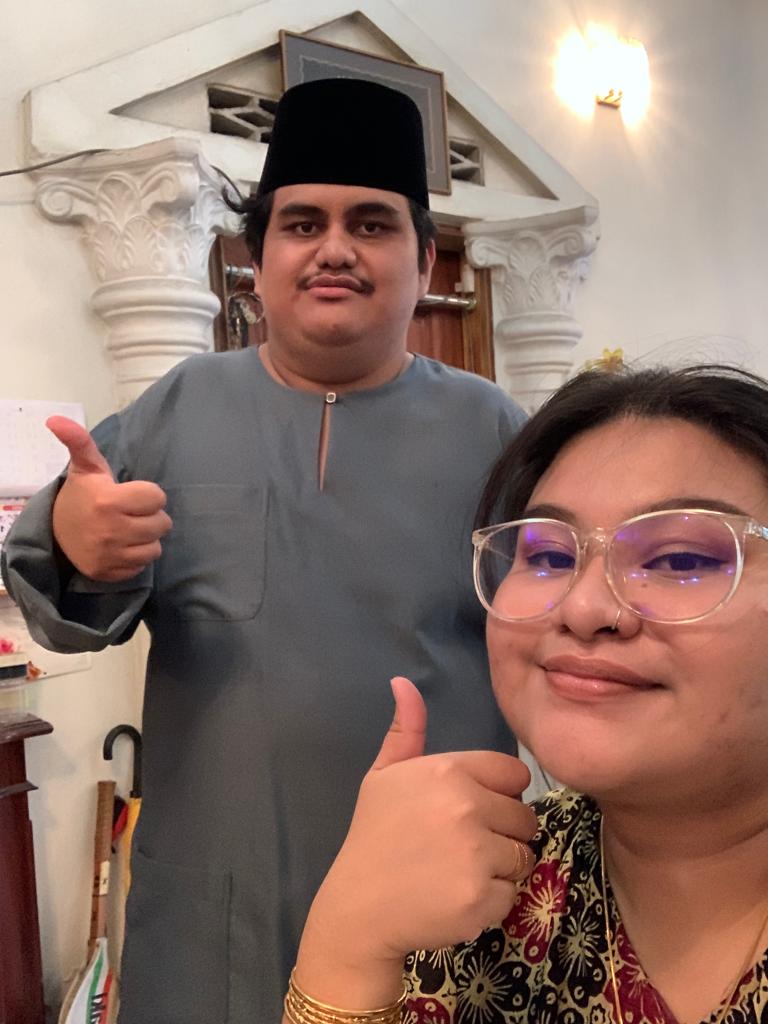Malaysians Share What It's Like To Care For Family Members With Autism
"I wish people understood that people with Autism Spectrum Disorder are just as different and unique as neurotypicals."
1. "While a number of autistic children do not require a special or dedicated caregiver, we decided that we will give Rayyan all the support he needs to be able to function fully in a normal world"
"Rayyan was diagnosed with a mild form of Asperger's Syndrome, which is part of Autism Spectrum Disorder (ASD), when he was three years old. He showed a delay in speaking and walking, which prompted us to get him checked by his paediatrician. He went for weekly speech and occupational therapy for about two years. While a number of autistic children do not require a special or dedicated caregiver, we decided that we will give Rayyan all the support that he needs to be able to function fully in a normal world. With that, we made the decision that his mother would quit her job to take care of him on a full-time basis.
"With Rayyan, what we found most challenging is communication. As he had delayed speech, it was difficult to understand what he wanted when he was a baby. As first-time parents, it was challenging for us to cope but we managed and as he got older, things started to get better with speech and other therapies. Now at 14, Rayyan is a great communicator who is very thoughtful and eloquent with his words. Though we still see Rayyan finding it difficult to fit in with normal kids his age as he prefers to converse with older adults.
"When he was younger, speech and occupational therapy helped significantly. We learned so much about exercises that are capable of stimulating his senses and how we can help him more effectively with exercises like three-word sentences to communicate what he wants to the Wilbarger Protocol (Brushing) for Sensory Integration, which was done daily with the help of his teachers at school, us at home, and his therapists. A lot of hugs and calming sessions helped a great deal when he was having meltdowns. He progressed so much after. Today, Rayyan still likes hugs and is more open to communicating what he feels.
"Awareness and education are important. Society needs to normalise autism. It is not a disability, it is a special ability. Autistic people see the world in a very different way and it would do society a lot of good if we try to understand their perspective. For parents, early intervention is important, always get your baby checked when you feel something is amiss; a mother's instinct is never wrong! This would very much help them get a better start and develop to their full potential."
— Narisha Ishak
2. "When people look and talk to me, they would say things like 'Wow, you're such a high-functioning autistic'. The truth is, my environment played a huge part in why I am able to be high functioning."
"I went to get my assessments done and received my diagnosis at the beginning of this year, but I started researching and learning about autism and attention deficit hyperactivity disorder (ADHD) in 2021 when my dysfunctions started being more apparent. Eventually, through the assessments, I was able to better understand myself. Now, at 26 years old, knowing I have combined ASD+ADHD, I can strategically navigate my own self-understanding.
"On a daily basis, I face issues such as sensory overload, missing certain social cues, anxiety, depression, and emotional colour blindness (also known as alexithymia; an impaired ability to be aware of, explicitly identify, and describe one's feelings). On top of that, I am aware of the energy levels that I have. For example, going to a crowded and loud restaurant for lunch is more tiring as the input of sounds of everyone coming in can become highly overwhelming, people coming too close to my personal space, and overall discomfort with unfamiliarity.
"My family was very accepting but they were saying things like 'I don't know what ASD+ADHD is, but you are a perfect human being'. While I can understand their viewpoint for saying that, it does cause contradictions in understanding how they should adjust in terms of speaking to me and how I respond as well. So, in terms of navigating these challenges, I have gained more help from my peers rather than my family, but one day I hope to be able to share my knowledge with my family in a way for them to understand me better.
"There is nothing 'wrong' about being on the spectrum. The word 'disorder' that comes together with the diagnosis paints a negative image of us. Being on the spectrum just means that we are different, we are diverse.
"On a diagnosis level, being mild, moderate, or severe, is just an indicator to know how much help you would need in order to learn coping mechanisms as well as inform the people around you that you need help. But just because an autistic person is mild or moderate does not mean that they are entitled to no help or understanding. We just need to learn how to be more kind and compassionate to one another, because some coping mechanisms for ASD can also be used to help people with post-traumatic stress disorder (PTSD)."
— Lynn
3. "Our biggest concern for Ayub is how he will cope as an adult, and who will care for and support him when my husband and I are no longer around"
"My son, Ayub, was seven years old when he was formally diagnosed, although it took around five years to reach that point. He is 14 years old this year, and he does not require a full-time caregiver per se; he can feed, bathe, clothe himself, and attend school and activities on his own. However, our biggest concern is how he will cope as an adult, and who will care for and support him when my husband and I are no longer around.
"Ayub gets overwhelmed and stressed when there are changes to his daily routine and schedule. A big challenge he faces is communication, both verbal and non-verbal. It makes it hard for him to connect and relate to others, and make long-lasting friendships. While this happens less now that he's older, sometimes he does experience panic attacks and meltdowns or shutdowns. This is when something triggers his anxiety and he's no longer able to regulate his emotions.
"We've found that prevention is the best way forward, by keeping Ayub away from environments that trigger his anxiety, such as crowded public areas, schools that do not cater to neurodiverse individuals, and places with loud sounds or bright lights. Having a good routine that he knows and is comfortable with has helped a lot in helping him feel safe. If we do have to change his routine or go somewhere different, we will tell him in advance so he can be prepared. We'll look at photos of the place and explain exactly what will happen so there are as few surprises as possible. Therapy has also been a great help to Ayub in many ways.
"I wish people understood that people with ASD are just as different and unique as neurotypicals. While they may be on the spectrum, their traits, personalities, interests, likes, dislikes, strengths, and weaknesses are all completely unique to them. They are more than just their diagnosis."
— Laila
4. "Suhail is 27 years old this year, and his condition requires us (his parents) to be his caregivers 24/7"
"My son was diagnosed with cerebral palsy with autistic behaviour when he was two years old. He was walking on his knees for a long time, but he showed improvement after physiotherapy helped his bodily functions when he was around three years old.
"We are unable to talk to him because he is non-verbal. He doesn't understand danger, and needs help with taking baths, wearing clothes, and preparing his food. His father and I are his caregivers, but initially we had maids to help us out.
"To improve Suhail's motor skills, we bought a monkey bar and trampoline for him to use on a daily basis. We encouraged our other four kids to use it as well, which in turn encouraged him to practise swinging and jumping. We tried many things to help him speak and read, such as the Glenn Doman method (which involves using word and picture cards) and speech therapy but they weren't very helpful. Teaching him Makaton sign language was the best way to get him to communicate his wants and needs with us.
— Shakila
5. "The challenge we face with my son is understanding what he is trying to say, since he is non-verbal"
"Haaliq Aydan is five years old. He has been diagnosed with comorbid ASD and ADHD, and has been non-verbal since he was three years old.
"Currently, one of the challenges is trying to understand what he says because he is non-verbal. Whenever we go out, Haaliq likes to run everywhere, because he is seeking sensory to get more sensory input from the environment. He has a lot of energy due to his ADHD.
"We need to utilise social stories to communicate with him. For example, if we are going to the mall, I will tell Haaliq, 'We are going out to buy stuff. No running. Hold my hand. Lots of people.' I use simple words in one sentence, so it's easy for him to understand. If we're heading to a new place like a restaurant, I will Google the picture, show it to him and tell him, 'We are going here'.
"I hope that people may understand and accept the behaviours exhibited by ASD kids. They may act and think differently, but they still have feelings."
— Zaynor
6. "He's not really able to be independent — like a lot of people that are further in the spectrum— so this means that he would constantly need someone to cook and perform basic housekeeping tasks for him"
"My 24-year-old brother Ilham is diagnosed with ADHD and autism.
"He was around six to seven years old when he was first diagnosed, at which point he was showing clear indications that he wasn't able to talk properly or function the way a proper seven-year-old would. Initially, he didn't need a round-the-clock caregiver, but did require a maid/helper to handle him (bathing, brushing teeth, and wearing clothes). Over time, he learned how to take care of his own basic hygiene.
"He's not really able to be independent — like a lot of people that are further in the spectrum— so this means that he would constantly need someone to cook and perform basic housekeeping tasks for him. He also doesn't fully comprehend potential household hazards like fire, electricity, etc., so he does need to be monitored just in case.
"My brother has recently gotten into cooking, so when it first happened we were very worried, considering he burned our pan black. How does he handle the fire? What if he burns himself next? What if he ends up setting the kitchen on fire? What if he forgets to switch the stove off?
"At first we wanted to ban him from cooking, but he's already in his 20s, it seemed unfair to treat him like a child, still. So, we met him in the middle. He showed us his cooking process, and we guided him to do it safer and better.
"It's really about compromise and understanding. Of course, this varies on the severity of their disorder, but as long as there's room for comprehension and mutual understanding, it's better to take advantage of that.
"I think it's extremely important to still view them as people with feelings, thoughts, and wants. Simple things like folding clothes, taking showers, boiling water, and more prove to be an added layer of challenge that people with ASD face (or at least, the ones who are non-functioning/not high-functioning) so be patient, and have a little empathy.
"If you're unable to put yourself in their shoes, think of their caretakers or parents, who are doing the best they can in handling unpleasant breakdowns in public for example. No one expects you to help or do anything hands-on, but sometimes words of reassurance help a lot! Saying things like 'It's alright, we understand', or 'Are you alright? Do you need anything?' can help alleviate the stress."
— Izza
7. "As he's an adult, all I can help as a sister is talk through whatever issues he is currently facing"
"I've an older brother who is autistic. Let's call him George. He's 32 this year and is working as a part-time English teacher.
"My mum started to suspect that George had a learning or developmental disorder when he lost his ability to speak around two years old, which worried her. It led her to look for answers from paediatricians and other healthcare professionals. Eventually, he was diagnosed with ASD and got his speech back with the help of early intervention at four years old. He was later diagnosed with Asperger's syndrome in high school. He's fully independent and does not require a caregiver, but requires a lot of emotional support to vent his anger as he is easily frustrated with things.
"While he had more learning and behaviour issues when he was younger, I'm proud of my mum for recognising his delayed milestones early and sending him for early intervention, as well as working actively with him to overcome his learning difficulties. Now, as a working adult who had gone through the worst of school and university, he still struggles with socialising, relating to others, and controlling his anger. He was bullied in school and still talks about it.
"As he's an adult, all I can help as a sister is talk through whatever issues he is currently facing. He's very easy to anger, so, while validating his feelings towards the frustrating issue, we also often have to spell out the social situation to him, so that he can calm down and see another perspective.
"While many may think having Asperger's is 'fine', because they compare my brother to others with more severe levels of ASD, I think it's important to highlight the stresses that individuals with Asperger's also face as an outwardly-okay looking person, as they experience many unseen social difficulties and anxieties. Regardless of an autism diagnosis, we never fully know what challenges another person is going through, so I just hope everyone would treat others with kindness and patience."
— May







